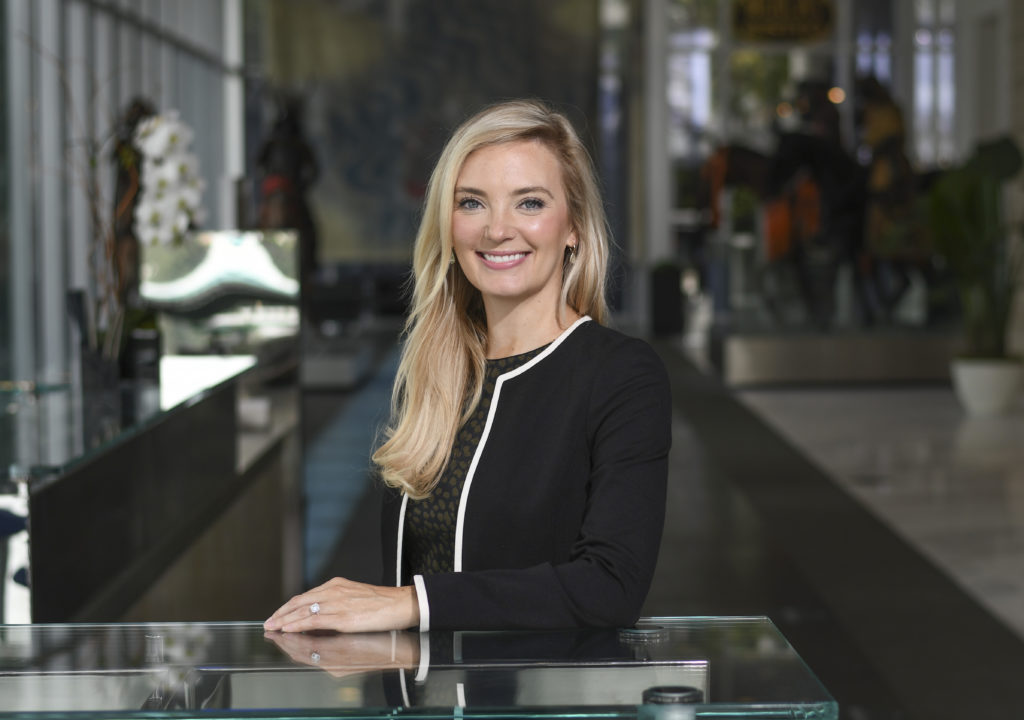
For Sarah M. Cummings, being named partner at global law firm Reed Smith was the culmination of a childhood dream.
“Much of the business case for my partnership was built upon the unique technological skillset I bring to representing my clients,” Cummings said. “Advocating for my own promotion to partnership was a great opportunity to also advocate for a larger and more central role for technology in the practice of law.”
Cummings works for clients in the life sciences and health care space. She started her legal career in Washington D.C. with dreams of being a civil litigator and “accidentally fell” into the health care space. Ten years later, she says she still loves what she does.
She said it’s a revolutionary approach to her practice that intersected her work with technology.
“A lot of our work involves data analysis, but it is very common for law firms outsource their forensic data analysis work to a consulting company,” Cummings said. “We perform that work in-house at Reed Smith, but more critically, the lawyers are the ones doing the forensic work.
“We’re loading the data, writing the code, exploring and testing theories to find the strongest possible defense for the case. By getting into the data in this way, we are forced to understand it in a primary way, rather than rely on someone else to translate it.”
The Dallas Business Journal recognized Cummings as one of its Women in Technology honorees for 2020. Here is more insight from an interview with her.
How do you think your business will change after the pandemic passes?
One important change that I truly hope outlasts the pandemic is hosting virtual legal clinics for underserved populations. In-person pro bono and community service events are sometimes poorly attended simply because of the logistical challenges associated with travel, arranging childcare for extended evenings, etc. But in the pandemic, many legal aid organizations have shifted to virtual clinics, where instead of meeting clients in-person downtown at 5 p.m., we now make phone calls during a certain window of time in the evening, so both our volunteers and clients can participate remotely without having to tackle travel and childcare arrangements. We’ve actually seen an uptick in participation of both volunteers and clients during this time.
What’s the biggest non-COVID-19 related challenge facing your organization over the next 12 months?
Law firms face two very intimidating barriers to change: (1) Lawyers are traditionally a very risk-averse and slow-growing group of professionals. (2) Lawyers like to say things like “I went to law school because I’m bad at math.” Law firms traditionally adopt new technology 5-10 years after everyone else (or worse). While there are small pockets of progressive approaches to the practice of law, we will be left behind if we do not incorporate technology into the daily delivery of our legal services.
What opportunity over the next year in your job has you excited?
With so much concerted effort at this moment towards remedying racial injustice and inequity, I am excited to see the difference we can make. A more diverse legal profession not only mirrors the society operate within and the clients we seek to serve, but it simply makes us better lawyers, advocates, mentors, teachers, and leaders.
What is something people aren’t thinking about that will change your industry in the future?
Well, I believe people are thinking about this particularly at this moment. But my answer is diversity and inclusion. Our clients, rightly so, won’t hire a law firm if they do not demonstrate that they are committed to diversity. I applaud our clients who require D&I data in their RFPs and who hold law firms accountable by ensuring that the diverse attorneys included in the pitch materials are given meaningful leadership roles in the work. We all benefit from a more diverse legal profession.
